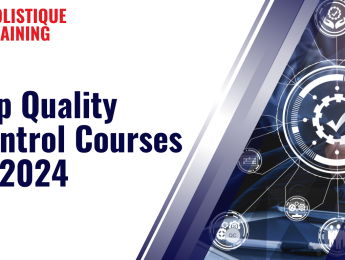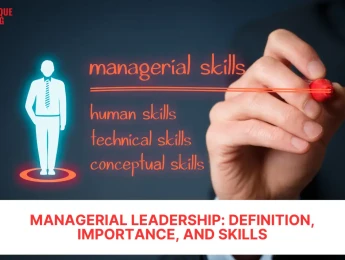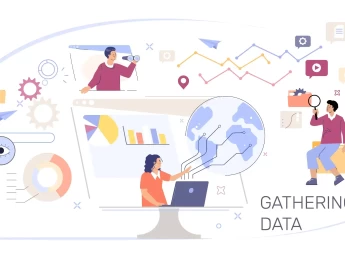- Table of Contents
- Introduction
- What Is a Content Creator?
- Types of Content Creators
- Influencers
- Bloggers
- Podcasters
- Vloggers
- Photographers & Videographers
- Creator Educators
- The Significance of Becoming a Content Creator in 2024
- Accessible Platforms:
- Creative Expression:
- Community Building:
- Impactful Storytelling:
- Entrepreneurial Opportunities:
- Influence and Authority:
- Personal and Professional Growth:
- Social Impact and Advocacy:
- Steps to Ascend as a Successful Content Creator
- Identify Your Audience:
- Choose a Platform:
- Design Your Content Plan:
- Identify Your Creator Personality:
- Choose a Niche:
- Invest in Content Creation Tools:
- Create a Portfolio:
- Market Yourself:
- Grow on Social Networks:
- Certification: Navigating the Path to Expertise
- Unveiling the Lucrative Potential of Content Creation
- Brand Partnerships and Sponsorships:
- Ad Revenue and Monetisation:
- Affiliate Marketing:
- Digital Products and Merchandise:
- Sponsored Content and Collaborations:
- Membership and Subscription Models:
- More Tips for Elevating Your Content Creation Game
- Create Content Continuously:
- Measure Success Through Tracking KPIs:
- Start a Blog:
- Engage with Your Audience:
- Collaborate with Fellow Creators:
- Stay Abreast of Trends and Innovations:
- Invest in Professional Development:
- Skills You Need to Learn
- Writing and Storytelling:
- Video Editing:
- Photography:
- Graphic Design:
- SEO (Search Engine Optimisation):
- The Bottom Line: What's the Payoff?
- Content Creation: Side Hustle or Full-Time Gig?
- Conclusion
Introduction
The demand for content creators is soaring as the digital landscape evolves. In this era of social media dominance and digital marketing prowess, being a content creator has become more than just a hobby—it's a lucrative career path that offers boundless opportunities for those willing to put in the effort. In this comprehensive guide, we'll delve into what it takes to become a successful content creator, explore the diverse realms of content creation, and unveil the secrets to carving out your niche in this dynamic industry.
What Is a Content Creator?
At its core, a content creator is an individual who crafts and shares engaging content across various platforms to entertain, inform, or inspire their audience. From captivating blog posts and stunning photography to captivating videos and immersive podcasts, content creators wield their creativity and expertise to leave a lasting impact on their viewers, readers, or listeners. They are the architects of digital storytelling, weaving narratives that resonate with their audience and spark meaningful connections in the virtual realm.
Types of Content Creators
In today's digital age, content creation encompasses diverse mediums, formats, and platforms, each offering unique opportunities for expression, engagement, and storytelling. From captivating visuals and immersive videos to thought-provoking articles and inspiring podcasts, content creators wield their creativity and expertise to connect with audiences, spark conversations, and leave a lasting impact in the digital realm. Let's delve deeper into the multifaceted world of content creation and explore the various types of content creators:
Influencers
Influencers are individuals who have amassed a loyal following on social media platforms such as Instagram, YouTube, and TikTok and wield influence over their audience's purchasing decisions, lifestyle choices, and brand preferences. From fashion and beauty influencers to fitness and travel influencers, influencers leverage their brand and online presence to collaborate with brands, create sponsored content, and authentically engage with their audience. Influencers play a pivotal role in the digital marketing landscape with their ability to drive engagement, foster brand awareness, and shape consumer behaviour.
Bloggers
Blogging remains one of the oldest and most enduring forms of content creation, offering a platform for individuals to share their thoughts, experiences, and expertise on a wide range of topics. Whether it's fashion, food, lifestyle, or personal finance, bloggers use their blogs to publish articles, guides, and tutorials that educate, entertain, and inspire their readers. With the rise of platforms like WordPress, Medium, and Blogger, blogging has become more accessible than ever, enabling aspiring writers and thought leaders to establish their online presence and build a dedicated audience around their niche.
Podcasters
Podcasting has surged in popularity recently, emerging as a powerful medium for storytelling, conversation, and audio entertainment. Podcasters create episodic audio content covering diverse topics, from true crime and comedy to business and self-improvement. With the flexibility to record and produce podcasts from virtually anywhere, podcasters engage with their audience through intimate conversations, interviews, and storytelling, fostering a sense of connection and community in the digital space.
Vloggers
Vlogging, or video blogging, involves documenting one's life, experiences, and adventures through video content shared on platforms like YouTube, Facebook, and Instagram. Vloggers offer a behind-the-scenes glimpse into their daily routines, travels, and hobbies, inviting viewers to join them and experience the world through their perspective. With the rise of vlogging culture and the prevalence of smartphones equipped with high-quality cameras, vlogging has become an accessible and immersive form of content creation for creators of all backgrounds and interests.
Photographers & Videographers
Visual content creators, including photographers and videographers, specialise in capturing compelling images and videos that evoke emotion, convey stories, and inspire viewers. Whether it's breathtaking landscapes, striking portraits, or cinematic short films, visual content creators use their artistic vision and technical skills to create visually stunning content that resonates with their audience. With advancements in digital cameras, editing software, and social media platforms, photographers and videographers have unprecedented opportunities to showcase their work, collaborate with brands, and build a global audience.
Creator Educators
Creator educators specialise in teaching and mentoring aspiring content creators, providing guidance, resources, and educational content to help them hone their skills and succeed in the competitive landscape of content creation. From online courses and workshops to coaching and consulting services, creator educators share their knowledge and expertise on photography, video editing, social media marketing, and content strategy, empowering aspiring creators to unlock their creative potential and achieve their goals.
In short, the world of content creation is as diverse and dynamic as the creators who inhabit it. Whether you're an influencer sharing your life with your followers, a blogger sharing your passion for a niche topic, or a podcaster engaging listeners through compelling audio storytelling, content creators play a vital role in shaping the digital landscape and influencing the way we consume information, connect with others, and experience the world around us. As technology continues to evolve and new platforms emerge, the possibilities for content creation are endless, offering creators unparalleled opportunities for expression, innovation, and impact in the digital age.
The Significance of Becoming a Content Creator in 2024
In today's digital age, the role of content creators has transcended mere entertainment—it has become a driving force shaping cultural trends, consumer behaviour, and global conversation. Here are some compelling reasons why becoming a content creator is more significant than ever:
Accessible Platforms:
With the proliferation of social media platforms and user-friendly content creation tools, anyone with a smartphone and an internet connection can become a content creator. This accessibility has democratised storytelling, empowering individuals from diverse backgrounds to share their perspectives and amplify their voices on a global scale.
Creative Expression:
Content creation offers an unparalleled outlet for creative expression, allowing individuals to showcase their unique talents, passions, and interests in captivating ways. Whether through photography, videography, writing, or design, creators can explore their creativity and leave a lasting imprint on the digital landscape.
Community Building:
Content creators have the power to foster vibrant communities united by shared interests, values, and experiences. Through their content, creators can spark meaningful conversations, forge genuine connections, and cultivate a sense of belonging among their audience members, transcending geographical boundaries and cultural barriers.
Impactful Storytelling:
In an era of information overload, compelling storytelling has emerged as a powerful tool for cutting through the noise and capturing audience attention. Content creators can craft narratives that resonate with their audience on an emotional level, driving engagement, empathy, and action.
Entrepreneurial Opportunities:
Content creation has evolved into a viable entrepreneurial endeavour, allowing creators to monetise their passion and expertise through various revenue streams. From brand partnerships and sponsored content to digital product sales and subscription models, creators can turn their passion into profit and build sustainable businesses around their content.
Influence and Authority:
Successful content creators wield considerable influence and authority within their respective niches, positioning themselves as trusted thought leaders and tastemakers. By consistently delivering high-quality content and engaging with their audience authentically, creators can build credibility, influence consumer behaviour, and shape industry trends.
Personal and Professional Growth:
Beyond the tangible rewards, content creation facilitates personal and professional growth, empowering creators to develop valuable skills, expand their network, and cultivate a growth mindset. From honing their communication and time management skills to mastering digital marketing and analytics, the journey of a content creator is ripe with opportunities for self-improvement and lifelong learning.
Social Impact and Advocacy:
Content creators have the potential to drive social change and advocate for causes they believe in, leveraging their platform to raise awareness, challenge stereotypes, and amplify marginalised voices. Whether promoting sustainability, advocating for social justice, or destigmatising mental health, creators can use their influence for positive impact and contribute to meaningful societal change.
In essence, becoming a content creator today is not just about creating content—it's about leveraging technology, creativity, and storytelling prowess to inspire, connect, and empower individuals worldwide. As the digital landscape continues to evolve, content creators stand at the forefront of innovation, driving cultural shifts and shaping the future of media and communication.
Steps to Ascend as a Successful Content Creator
Embarking to become a successful content creator requires more than just creative flair—it demands strategic planning, relentless dedication, and a deep understanding of your audience and industry. Here's a comprehensive breakdown of the steps you need to take to ascend to the upper echelons of content creation:
Identify Your Audience:
Before creating content, research and understand your target audience. Who are they? What are their interests, pain points, and aspirations? By gaining insights into your audience demographics and psychographics, you can tailor your content to resonate with their preferences and effectively capture their attention.
Choose a Platform:
With a myriad of platforms available—from social media giants like Instagram and YouTube to blogging platforms like WordPress and Medium—selecting the right platform is crucial for reaching your audience. Consider your content format, audience demographics, and engagement preferences when choosing your primary platform.
Design Your Content Plan:
Develop a strategic content plan outlining the type of content you'll create, how often you'll post, and the overarching themes or topics you'll explore. A well-defined content plan keeps you organised and consistent and ensures that your content aligns with your audience's interests and expectations.
Identify Your Creator Personality:
Infuse your content with your unique voice, style, and personality to distinguish yourself from the myriad of creators vying for attention. Whether witty and irreverent or thoughtful and introspective, embracing your authentic self is key to forging genuine connections with your audience and fostering brand loyalty.
Choose a Niche:
In a saturated digital landscape, carving out a niche is essential for standing out and establishing yourself as an authority in your field. Identify a niche that aligns with your interests, expertise, and audience demand, and focus your content efforts on catering to that niche. Remember, dominating a niche is better than being a jack-of-all-trades.
Invest in Content Creation Tools:
Investing in third-party tools and software can streamline your content creation process and elevate the quality of your output. Whether it's professional video editing software, graphic design tools, or social media scheduling platforms, leveraging the right tools can help you work more efficiently and effectively.
Create a Portfolio:
Build a comprehensive portfolio showcasing your best work across various platforms and mediums. Your portfolio is a digital resume, allowing potential clients, collaborators, or employers to assess your skills, creativity, and professionalism. Remember to highlight your most impressive projects and achievements to leave a lasting impression.
Market Yourself:
Effective self-promotion is essential for expanding your reach and attracting new audiences in the competitive landscape of content creation. Leverage social media, email marketing, and networking opportunities to showcase your content, engage with your audience, and amplify your brand presence across multiple channels.
Grow on Social Networks:
Engage with your audience authentically, collaborate with fellow creators, and stay abreast of the latest trends and algorithms to foster organic growth on social media. Building a loyal and engaged following takes time and effort, so be patient, consistent, and responsive to your audience's feedback and interactions.
By following these steps and continuously refining your craft, you can embark on the path to becoming a successful content creator. Remember, success in content creation is not just about creating content—it's about understanding your audience, delivering value, and forging meaningful connections that resonate with your audience on a deeper level. So, roll up your sleeves, unleash your creativity, and let your content shine in the digital spotlight.
Certification: Navigating the Path to Expertise
While no formal certification is required to become a content creator, acquiring relevant certifications and credentials can enhance your skills, credibility, and marketability in the competitive landscape of content creation. Whether you're a novice looking to kickstart your journey or an experienced creator seeking to level up your expertise, pursuing certifications can provide invaluable insights, resources, and validation of your proficiency.
Platforms like Coursera, Udemy, and Skillshare offer many courses covering a wide range of topics relevant to content creation, including photography, videography, graphic design, social media marketing, and content strategy. These courses are typically taught by industry experts and seasoned professionals, providing you with actionable knowledge and practical skills to apply directly to your content creation endeavours.
Additionally, specialised certifications such as Google Analytics, HubSpot Content Marketing, and Hootsuite Social Media Marketing can bolster your credentials and demonstrate your proficiency in specific areas of content creation and digital marketing. These certifications validate your expertise and signal to potential clients, collaborators, and employers that you possess the skills and knowledge needed to excel in your field.
At Holistique Training, we offer a comprehensive course on Social Media Marketing for Businesses, designed to equip aspiring content creators with the knowledge and skills needed to leverage social media platforms effectively, grow their audience, and drive engagement. Taught by industry experts, this course covers essential topics such as content strategy, audience targeting, platform optimisation, and analytics tracking, providing you with the tools and strategies you need to succeed in the competitive world of content creation.
By investing in certifications and continuing education, you can stay ahead of the curve, expand your skill set, and position yourself as a trusted authority in the ever-evolving landscape of content creation. Whether you're looking to land lucrative brand partnerships, attract high-paying clients, or grow your personal brand, acquiring relevant certifications can open doors to exciting opportunities and propel your career to new heights.
Unveiling the Lucrative Potential of Content Creation
The allure of content creation extends far beyond mere creativity—it's also a viable career path with substantial earning potential. Successful content creators can monetise their content through various avenues, including:
Brand Partnerships and Sponsorships:
One of the primary sources of income for content creators is collaborating with brands and businesses through brand partnerships and sponsorships. Brands constantly seek authentic and engaging content creators to promote their products or services to their target audience. By leveraging their influence and audience trust, content creators can negotiate lucrative partnerships that provide financial compensation and opportunities for exposure and brand alignment.
Ad Revenue and Monetisation:
Platforms like YouTube, Instagram, and TikTok allow creators to monetise their content through advertising revenue. Creators can earn money through ad placements within their videos or posts, with earnings determined by audience engagement, ad performance, and platform policies. Additionally, creators can explore alternative monetisation strategies such as channel memberships, subscriptions, and pay-per-view content to diversify their revenue streams and maximise their earnings potential.
Affiliate Marketing:
Affiliate marketing is another lucrative avenue for content creators to generate passive income by promoting products or services and earning a commission for each sale or referral. By partnering with affiliate programs and incorporating affiliate links into their content, creators can monetise their recommendations and endorsements while providing value to their audience. Successful affiliate marketing requires authenticity, transparency, and alignment between the creator's content and the promoted products or services.
Digital Products and Merchandise:
Many content creators leverage their expertise and personal brand to create and sell digital products, courses, e-books, and merchandise to their audience. Whether it's a photography editing preset, an online course on content creation, or branded merchandise like clothing and accessories, digital products offer creators a scalable and passive income stream while providing value to their audience. By identifying their audience's needs and preferences, creators can develop and monetise digital products that resonate with their audience and complement their content.
Sponsored Content and Collaborations:
In addition to brand partnerships, content creators can monetise their platform through sponsored content and collaborations with other creators, influencers, or businesses. Whether it's co-hosting a podcast, participating in a sponsored challenge, or creating branded content in collaboration with a partner, sponsored collaborations offer creators opportunities for exposure, networking, and financial compensation. However, creators need to maintain authenticity and transparency in their sponsored content to preserve their audience's trust and credibility.
Membership and Subscription Models:
Membership and subscription models offer content creators a recurring revenue stream by providing subscribers or members exclusive content, perks, and benefits. Platforms like Patreon, Substack, and OnlyFans enable creators to monetise their content directly from their audience through subscription-based models, fan clubs, or premium content tiers. By offering unique and valuable content to their most dedicated fans, creators can cultivate a loyal community and generate consistent income over time.
In short, the lucrative potential of content creation extends far beyond mere creativity—it's a multifaceted ecosystem of monetisation opportunities, entrepreneurship, and innovation. By harnessing their creativity, expertise, and entrepreneurial spirit, content creators can unlock a world of financial freedom, professional fulfilment, and limitless possibilities in the dynamic landscape of digital media.
More Tips for Elevating Your Content Creation Game
Becoming a successful content creator requires more than talent and creativity—it demands strategic planning, consistent effort, and a relentless pursuit of excellence. To elevate your content creation game and stand out in a crowded digital landscape, consider implementing the following tips and strategies:
Create Content Continuously:
Consistency is key in the world of content creation. Establish a regular posting schedule and stick to it to keep your audience engaged and coming back for more. Maintaining a consistent presence demonstrates reliability and commitment to your audience, whether it's daily vlogs, weekly blog posts, or monthly newsletters.
Measure Success Through Tracking KPIs:
Set clear goals and key performance indicators (KPIs) to track the performance of your content and gauge its effectiveness. Monitor metrics such as engagement rates, audience demographics, conversion rates, and revenue generated to assess the impact of your content strategy and make data-driven decisions to optimise your future content efforts.
KPIs for Content Creators | Description | Measurement Method |
Engagement Rate | Percentage of audience interacting with content | Calculated by likes, comments, shares |
Reach | Number of people exposed to content | Analytics from Platform Insights |
Conversion Rate | Percentage of the audience taking the desired action | Tracked through clicks, purchases |
Audience Growth Rate | Rate of increase in follower/subscriber count | Calculated over a specific period |
Click-Through Rate (CTR) | Percentage of audience clicking on content | Calculated by clicks divided by impressions |
Table 1. KPIs for Content Creators
Start a Blog:
In addition to your primary content platform, consider starting a blog to complement your content strategy and expand your digital footprint. A blog allows you to delve deeper into topics, share long-form content, and improve your search engine visibility through targeted keywords and SEO optimisation. Plus, it is a centralised hub for showcasing your expertise and driving traffic to your other digital channels.
Engage with Your Audience:
Cultivate a genuine connection with your audience by engaging with them across social media platforms, comment sections, and community forums. Respond promptly to comments, messages, and inquiries, and encourage dialogue and interaction to foster a sense of community and belonging among your followers. By listening to your audience's feedback and incorporating their input into your content, you can build stronger relationships and enhance loyalty.
Collaborate with Fellow Creators:
Collaboration is a powerful way to expand your reach, cross-promote your content, and tap into new audiences. Partner with fellow creators, influencers, or brands on joint projects, collaborations, or guest appearances to leverage each other's audiences and amplify your collective impact. Collaborations provide fresh perspectives and creative inspiration and open doors to new opportunities and networking connections.
Stay Abreast of Trends and Innovations:
Keep a finger on the pulse of the ever-evolving landscape of content creation by staying updated on industry trends, emerging platforms, and technological innovations. Follow industry publications, attend conferences, and participate in online communities to stay informed and inspired by the latest developments in your field. By embracing change and adapting to new trends and technologies, you can stay ahead of the curve and maintain your competitive edge as a content creator
Invest in Professional Development:
Continuously invest in your professional development and skill enhancement to stay relevant and competitive in the fast-paced world of content creation. Enrol in courses, workshops, and seminars to hone your craft, acquire new skills, and stay abreast of industry best practices. Platforms like Holistique Training offer a range of courses on topics such as social media marketing, content strategy, and digital storytelling to help you sharpen your skills and take your content creation game to the next level.
By implementing these extra tips and strategies into your content creation workflow, you can elevate your craft, expand your audience, and position yourself for long-term success in digital media's dynamic and ever-evolving landscape. Remember, success in content creation is not a destination but a journey of continuous learning, growth, and innovation.
Skills You Need to Learn
To thrive in the competitive world of content creation, mastering a diverse array of skills is essential. From crafting captivating narratives to producing visually stunning imagery, content creators must possess a multifaceted skill set that allows them to engage, inspire, and connect with their audience effectively. Here are the essential skills every content creator should cultivate:
Writing and Storytelling:
At the heart of every piece of content lies a compelling story waiting to be told. Whether crafting a blog post, scripting a video, or composing a social media caption, weaving engaging narratives and articulating ideas effectively is paramount. Hone your writing skills by practising storytelling techniques, refining your prose, and experimenting with different writing styles to captivate your audience and convey your message with clarity and impact.
Video Editing:
In an era dominated by visual content, proficiency in video editing is a valuable skill for content creators. From trimming footage and adding transitions to enhancing audio and incorporating visual effects, video editing allows you to bring your content to life and create polished, professional-looking videos that captivate and engage your audience. Familiarise yourself with popular video editing software such as Adobe Premiere Pro, Final Cut Pro, or DaVinci Resolve, and explore tutorials and online courses to master advanced editing techniques and elevate the quality of your video content.
Photography:
A picture is worth a thousand words, and as a content creator, mastering the art of photography is essential for creating visually compelling imagery that resonates with your audience. Whether you're capturing landscapes, portraits, or product shots, understanding composition, lighting, and visual aesthetics is key to producing stunning photographs that command attention and evoke emotion. Invest in a quality camera or smartphone with a capable camera system, experiment with different shooting techniques and editing styles, and continuously refine your craft to develop your unique photographic voice and style.
Graphic Design:
From social media graphics and thumbnails to branding elements and promotional materials, graphic design plays a crucial role in your content's visual identity and branding. Acquire basic graphic design skills by familiarising yourself with design principles, typography, colour theory, and layout composition. Utilise graphic design software such as Adobe Photoshop, Illustrator, or Canva to create eye-catching visuals, graphics, and branding assets that enhance your content's aesthetic appeal and professionalism.
SEO (Search Engine Optimisation):
In an increasingly crowded digital landscape, understanding the principles of search engine optimisation (SEO) is essential for maximising the discoverability and reach of your content. Conduct keyword research to identify relevant search terms and phrases related to your content, optimise your titles, descriptions, and metadata for search engines, and incorporate strategic keywords and tags into your content to improve its visibility and ranking in search engine results pages (SERPs). By mastering SEO techniques, you can attract organic traffic, increase your content's reach, and grow your audience over time.
By mastering these essential content creation skills, you can elevate your content's quality, impact, and effectiveness and position yourself as a trusted authority and influencer in your niche. Remember, mastery is a journey of continuous learning, experimentation, and refinement, so don't be afraid to step out of your comfort zone, embrace new challenges, and push the boundaries of your creativity as you strive to become the best content creator you can be.
The Bottom Line: What's the Payoff?
The earning potential for content creators varies widely depending on audience size, niche, and monetisation strategies. While some creators earn modest incomes supplementing their primary source of revenue, others command six or even seven-figure salaries through brand partnerships, sponsored content, and other lucrative opportunities.
In the U.S., YouTubers averaged $4,616 monthly, totalling around $55,000 annually. Zip Recruiter cites the average annual salary for U.S. content creators as $50,510. According to a Hype Auditor survey, Instagram micro-influencers earned $2,970 monthly, while those with over 1 million followers earned $15,356 monthly. TikTok influencers with up to 100,000 followers earned $793 per post. On Twitter, those with under 5,000 followers are charged $56 per post, rising to $126 for those with over 25,000 followers, according to Statista. While not everyone will earn millions, these figures demonstrate the potential for substantial income in content creation.
Content Creation: Side Hustle or Full-Time Gig?
For many aspiring creators, content creation starts as a passion project or a side hustle—a creative outlet to share their talents and connect with like-minded individuals. However, as their audience grows and their income potential expands, many content creators eventually transition to full-time entrepreneurship, devoting their time and energy to nurturing their digital presence and monetising their creative endeavours.
Conclusion
In conclusion, successful content creation requires a multifaceted approach combining artistic expression, strategic planning, and unwavering dedication. By embracing the tips and strategies outlined in this guide, continuously refining your craft, and adapting to the dynamic shifts in digital media, you can position yourself for success and carve out your niche in the ever-evolving landscape of content creation.
To further enhance your skills and expertise in content creation and digital marketing, consider enrolling in our comprehensive course, "Media and Marketing." This course offers valuable insights, practical strategies, and hands-on training to help you master the art of content creation, leverage social media platforms effectively, and maximise your impact in the digital sphere. Take the next step towards unlocking your full potential as a content creator and join our course today!
























